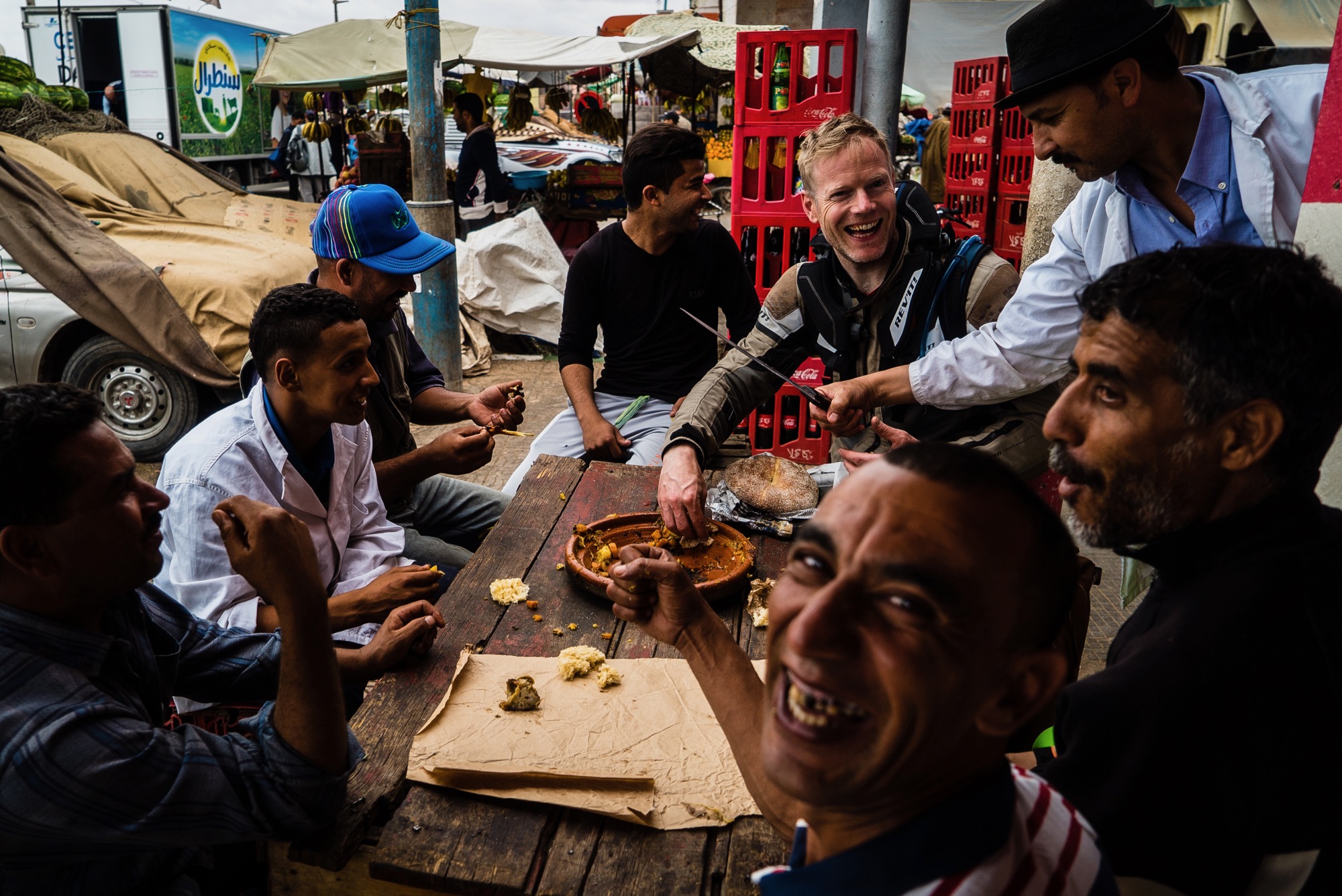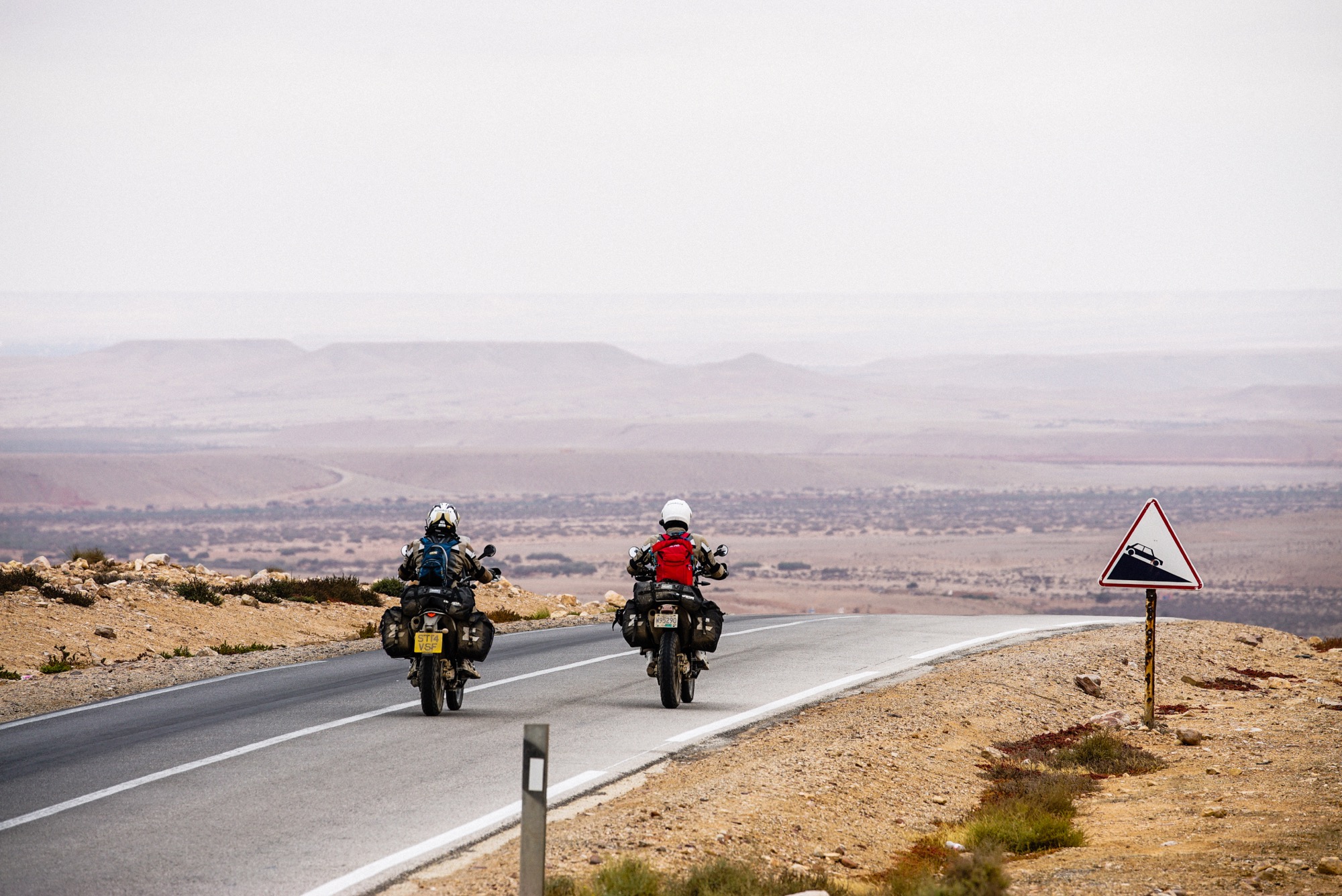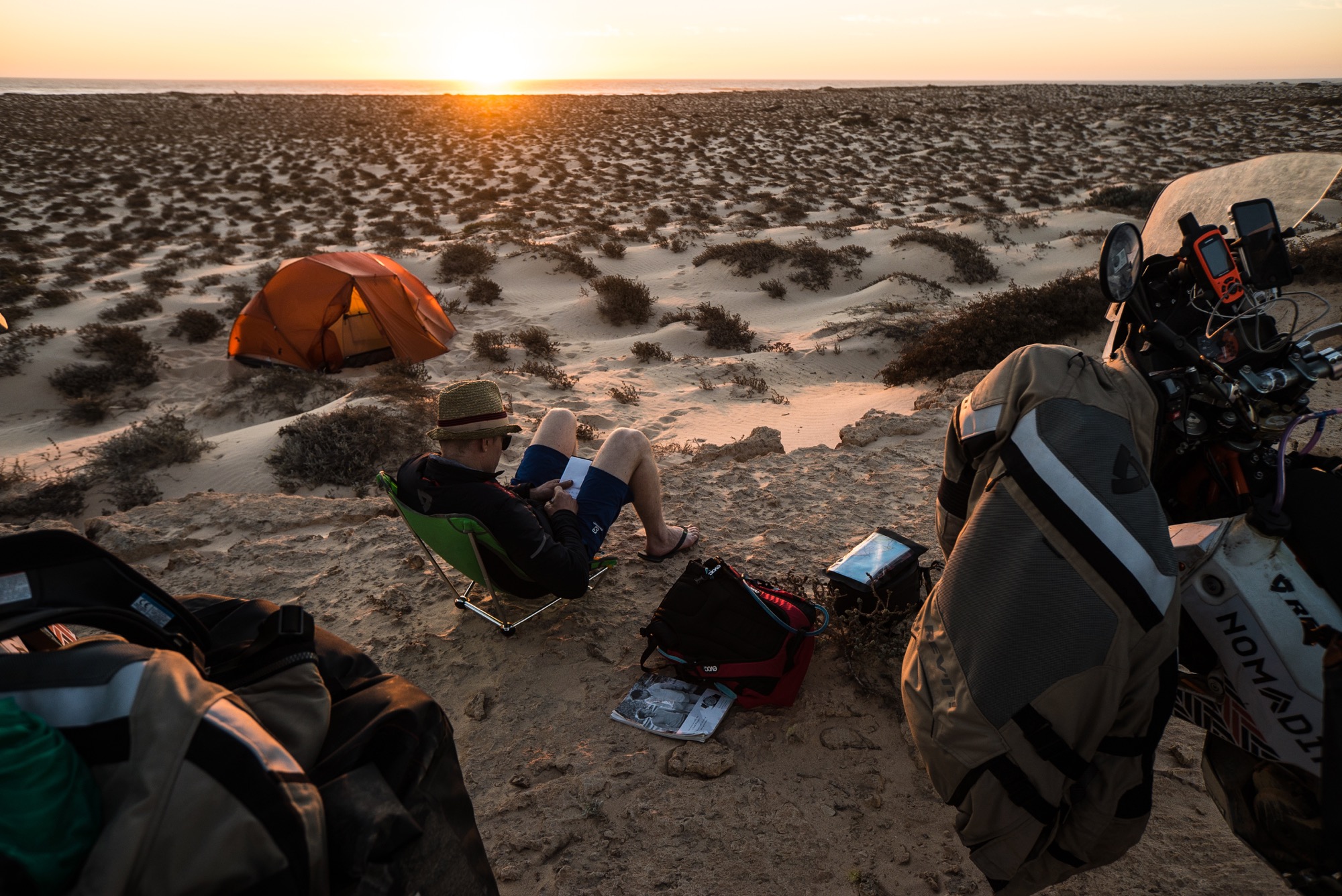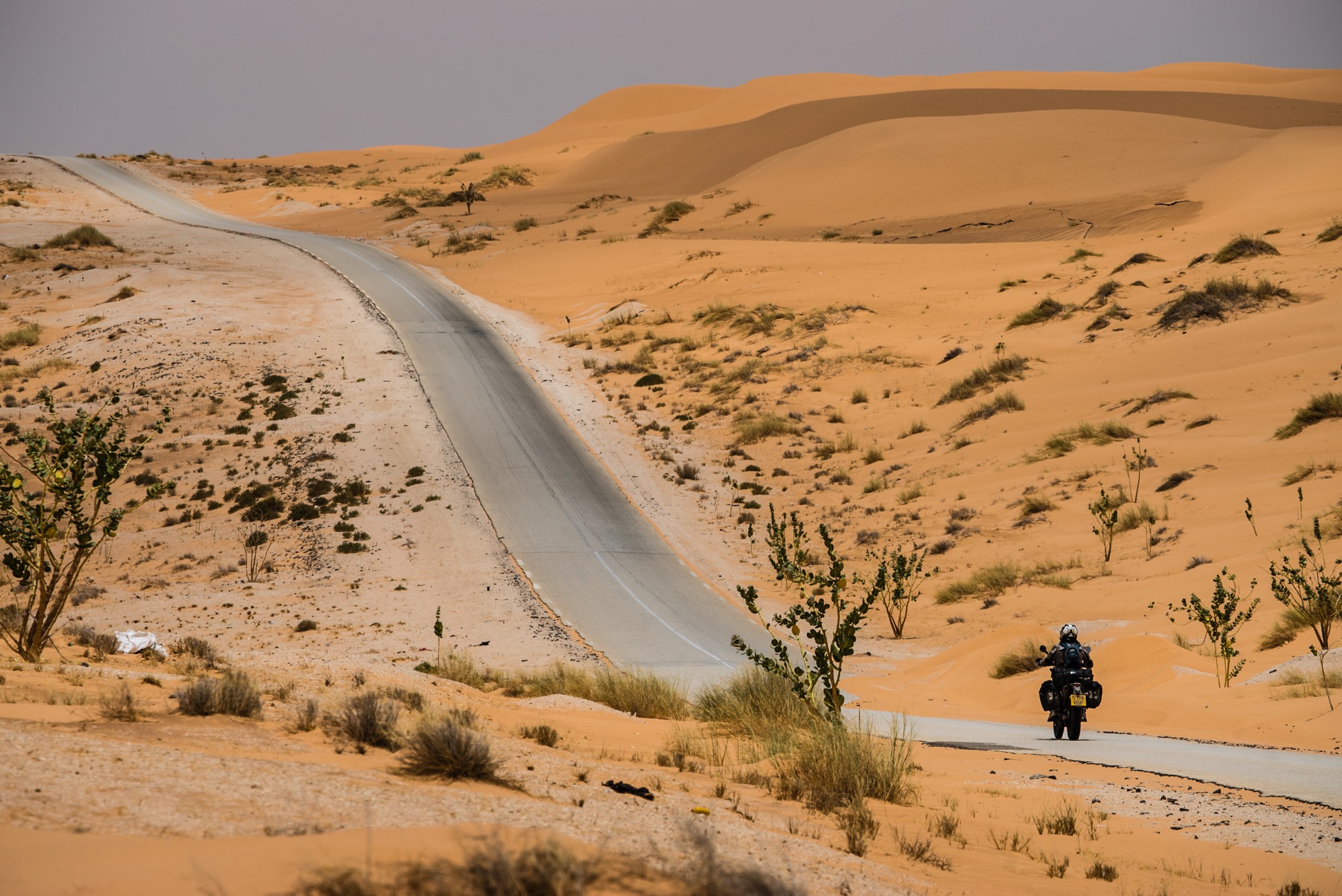The vastness of the Sahara has given way to savannah and pastoral villages, demarcated by mud brick huts with the thatched roofs of Senegal. If it didn't feel like it before, now we really feel like we have arrived in Africa. The sun has barely crested the horizon and already the heat is becoming oppressive. We are whisked along steadily by our 2 KTM 690's while the villages we pass come to life gently but with a briskness that prefaces the inferno that will surely come. Off to one side we spot a hive of activity as men, women, children, cows and donkeys congregate around a communal well. We pull over to top up our water bladders and wet our vests, all the while encountering the Africa we came to discover. The women and children pull up leaky buckets of water that are decanted into tubs before being escorted atop someone's head to a small vegetable patch close by. The women are hard at work, yet elegant and regal in vibrantly coloured dresses.
We are like aliens from outer space to them. Shy at first, they ask where we are from and shake their heads and laugh disbelievingly when we explain we have ridden from Northern Ireland. France, Spain, Morocco, Mauritania, and now Senegal. They don't believe us and there are fleeting moments where we don't believe it either.
Departing Belfast on May 11th, 2017.
12 years ago the first flame of this idea flickered. Richard and I were living together in Chamonix in the French Alps, when we concocted the concept of riding motorcycles through Africa. Since then Richard moved home to Belfast, Northern Ireland and I found myself in Canada living in the mountains of Whistler. He took over the family lighting business and I found myself a career as a filmmaker. We had talked about the trip occasionally in the intervening years, but nothing concrete until 2017 when I wanted to take three months off from work to do something different. I had no idea if riding a motorcycle from Europe to Cape Town was possible in 3 months but I needed something to fill the time. Richard and his new wife were planning to start a family and this would be his last opportunity for a long time to do something like this. That was in August 2016, and here we are now in the middle of May, 2017, Richard's wife Theresa is pregnant with their first child and we are steadily making our way south through Western Africa.
The trip came together quickly, without so much as a shakedown ride. We figured Belfast to the south of Spain would suffice. This leg alone proved to be a greater distance than Richard had ridden in total up to that point since Richard got his license for this trip. Other than forgetting his registration papers in Belfast and leaving his license at a campground in the south of France, forcing us to forge one by laminating copies of an out of date version he had a scan of to a library card, he has been doing fine. And while it was frustrating having to wait for FedEx to arrive with his bike documents, spending 5 days looking out across the Mediterranean to Morocco and the entire continent of Africa only heightened the allure of what lay ahead.
Fresh off the boat in Morocco and happy to be in Africa.
The ferry to Morocco was a grand way to officially get the trip moving again. Upon landing, we traced the Atlantic coast, moving through rich agricultural land that yielded an abundance of fresh produce. 50kms of tomatoes before another 30kms of eggplant and other vegetable before the landscape gave way to wheat fields and slowly the desert. Given Morocco's proximity to Europe, we decided that we would be more likely to make it back to explore further than to somewhere like the Congo. And given how good the food and hospitality and dramatic the landscape was, we will certainly be back to Morocco. So we set an upbeat pace on good roads to knock it off relatively quickly.
The mountains in the north gave way to the Sahara and the stark beauty of the desert. With barely a bend in the road and nothing but sand and wind and more sand, there was little reason to stop so we chewed of 600 and 800 kms days. As we entered Western Sahara and into Mauritania, the checkpoints intensified, but they were polite and courteous, and upon handing them a fiche with all our document details printed on it, we were invariable on our way without hassle.
St Louis, Senegal.
Our first real encounter with the hustle and bustle of Africa came crossing into Senegal. We opted against the notoriously sketchy Rosso border to cross at Diama over a dam wall. With more traffic diverting to Diama, the con has developed and we were extorted by a large gate that we had to pay to get through. After initially remaining definite, the situation escalated when Richard blocked other local traffic from passing toll free through the gate. This precipitated with a large Senegalese man physically dragging Richard and his motorcycle out of the way while cursing our existence. Losing hope that our tactic of time and refusal to pay bribes, tarifs or tolls, we proclaimed if the police said we needed to pay, we would pay. The police wanted nothing to do with the situation—they were going to get paid either way—so finally we tucked our tales between our legs and paid up the 4 euros each. It was not the warmest welcome but after that Senegal was a real delight.
That is except for the heat. The desert proved to be warm and windy and empty, while the path we took east from Senegal into Mali and Burkina Faso was a trial. 46 degree temperatures and no wind meant the only respite we got was riding and that was akin to riding into a hair dryer. At night we would pull over an hour before sunset and find a secluded place to camp. Seldom did we get a hint of a breeze even without the tent fly. By morning, pools of sweat would have collected on the floor.
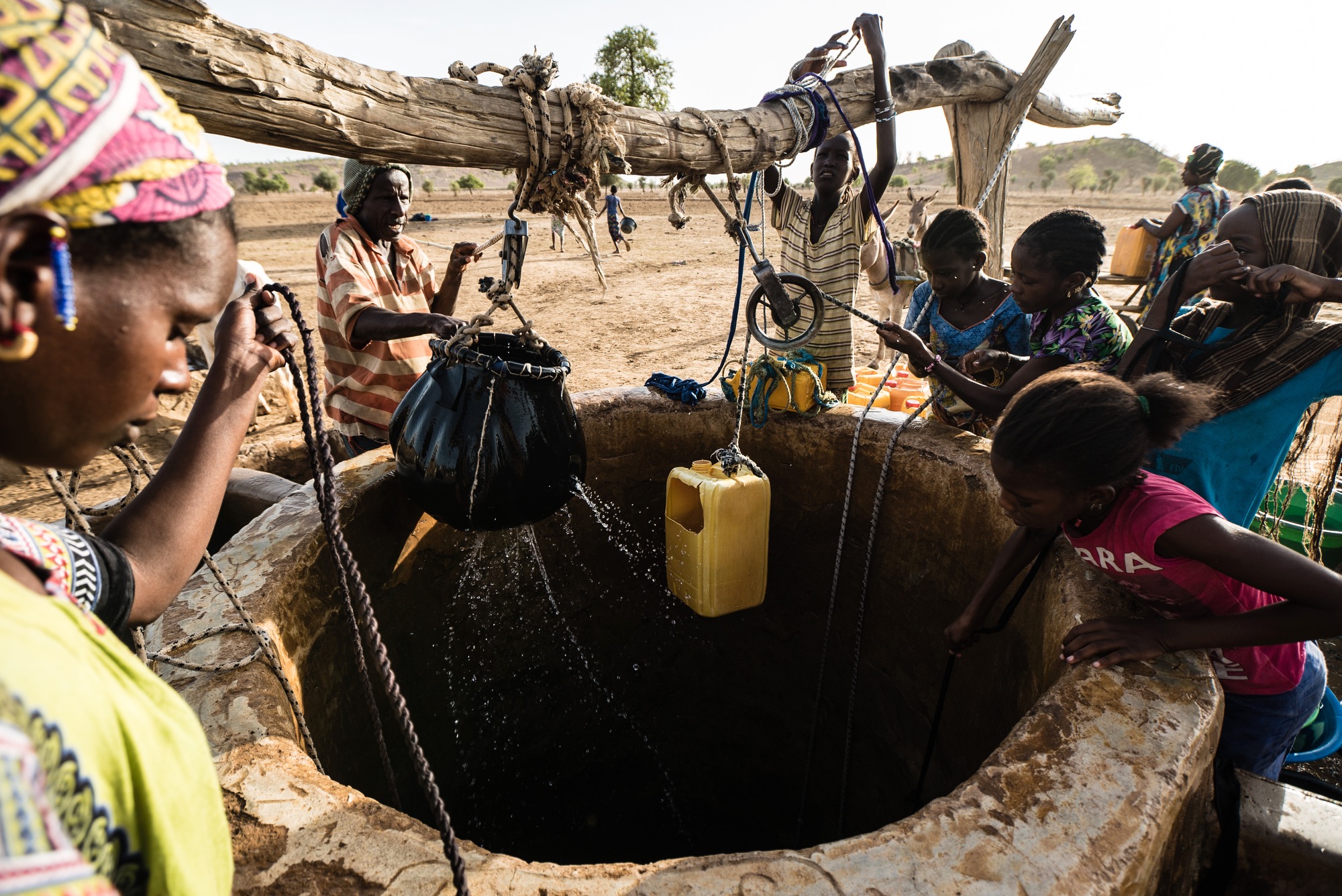
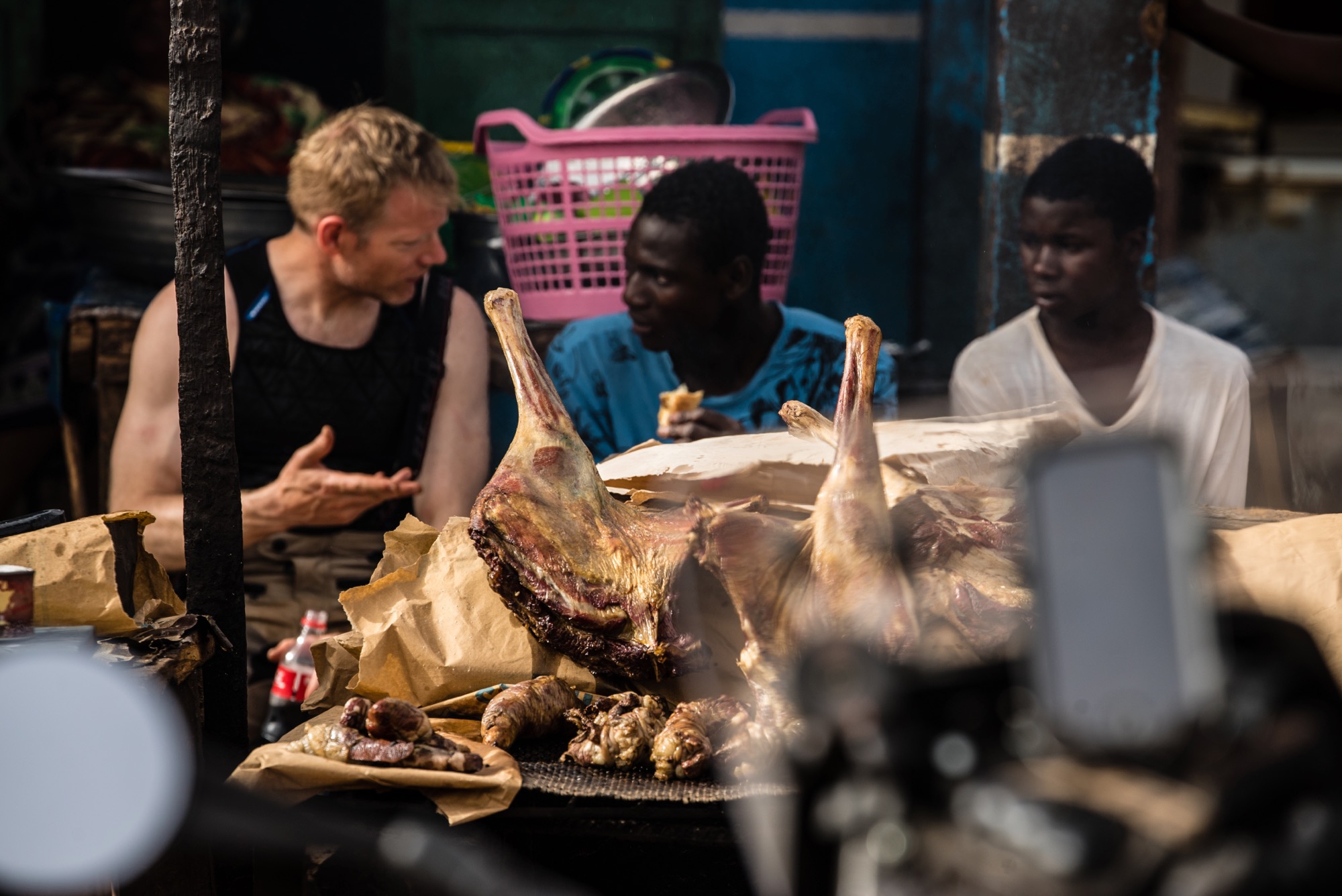
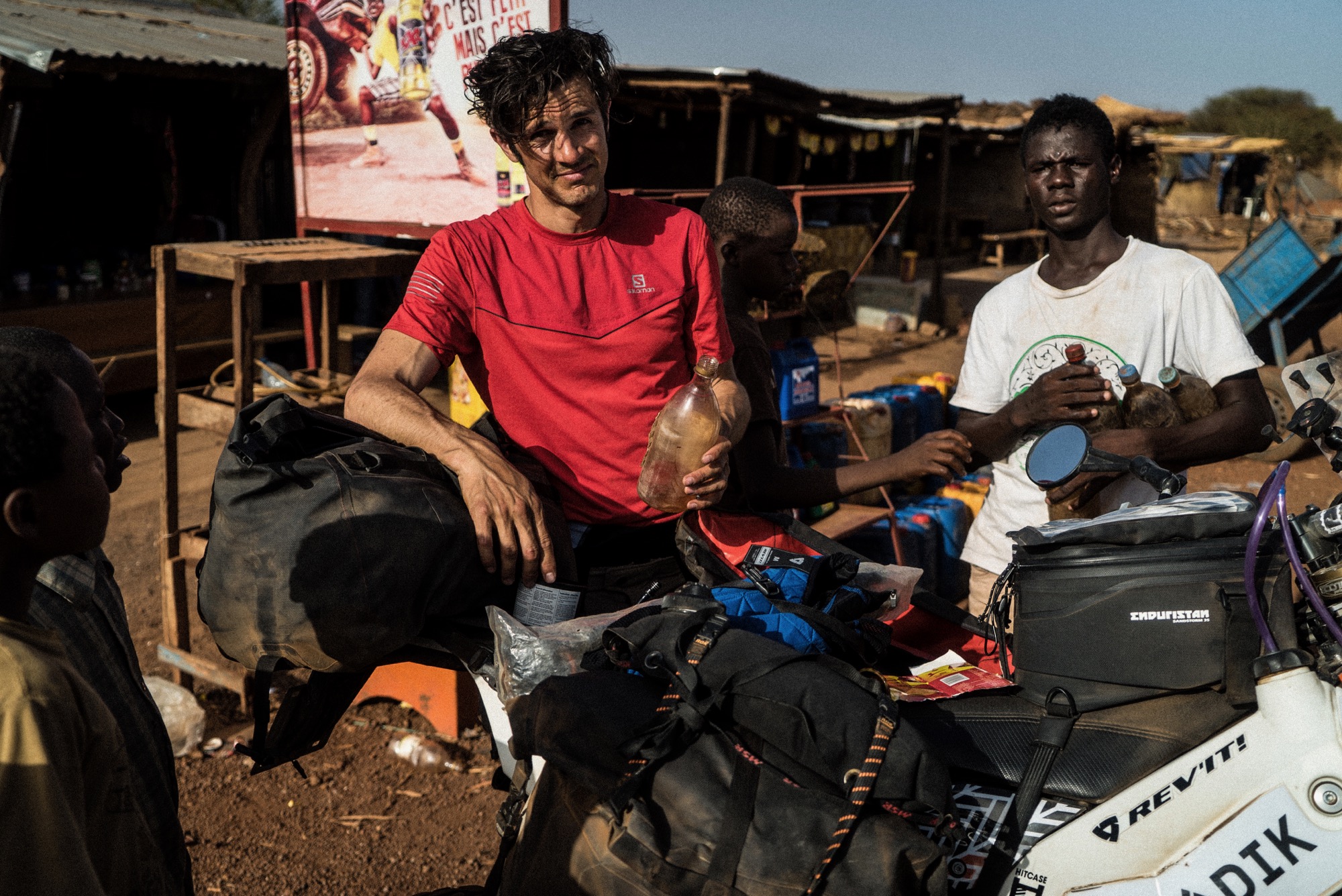
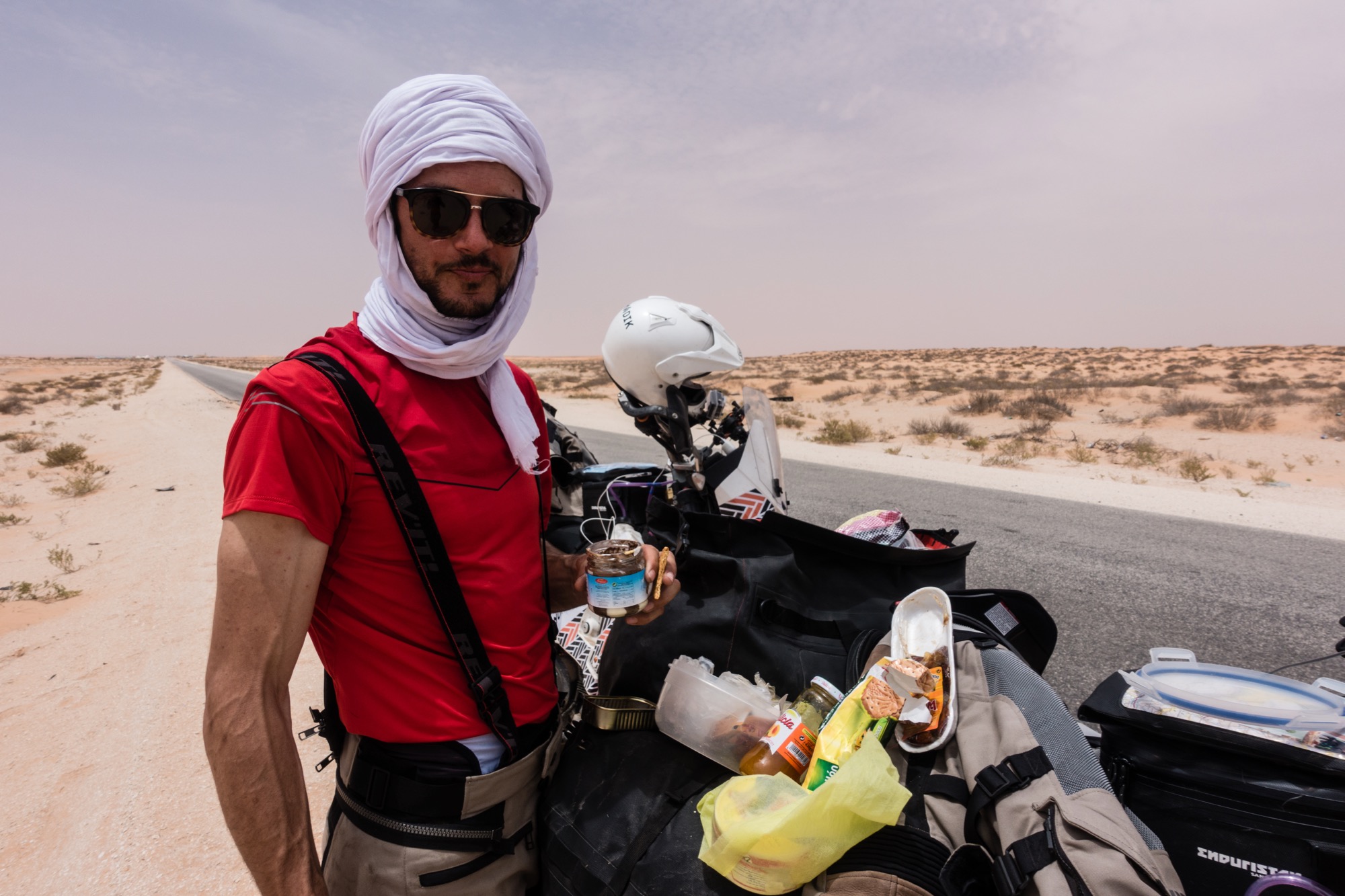
To further test our resolve, the Islamic tradition of Ramadan—a month long fast where people don't drink or eat from sunrise to sunset—had just begun keeping all the restaurants closed and a cold beer impossible to find. Eating sardines, olives and a bit of jam on a squashed baguette was getting old. It wasn't until we reach the Sleeping Camel, a popular watering hole for expat UN and NGO staff in Bamako Mali, that we were able to quench our thirst and recover from 5 days of heat and constant motion in the saddle.
The Sleeping Camel in Bamako was a welcome respite from the heat and a good place to recover and share some tales with various UN and NGO staff.
In the lethargy of the midday, the local staff and expats alike waited on the the storm that was brewing to break the heat. Without reliable electricity and refrigeration, the hotel had not been able to order chicken for the menu for weeks. Everybody was ready for it to crack. And for a chicken burger. Resting in the shade under the water mister at the Hotel, the heat finally succumbed when the heavens opening with a resounding clap of thunder and unleashed a torrent that while it offered respite from the heat, was a foreboding gesture of what was to come in the wet season. From here on out we would be skipping between monsoonal downpours and dodging mosquitos that were soon to come back to life.
In between cold showers, eating and napping, we applied for our Nigerian visas which much like Nigeria itself were proving to be notorious. Before we had departed, friends, family, the news, had all warned us of travelling through the Congos. But since being in Africa, all the African people we met and spoke to cautioned against travelling through Nigeria. As we got closer the warnings and opinions of the state of things in Nigeria intensified.
After our Nigerian visas finally came through thanks to Omar, an exceedingly helpful aide at the Nigerian embassy, we had recovered sufficiently from the toll the heat had taken on us and we set off again, enjoying superb riding through Burkina Faso as we explored unsealed backroads, avoiding the main roads by tick tacking through outpost villages often linked by footpaths. As we set our bearing south through Togo the landscape became greener and more lush as we neared the coast again. The jungle was coming and while it meant we were nearing the uncertainty of Nigeria, we were feeling ready for it.
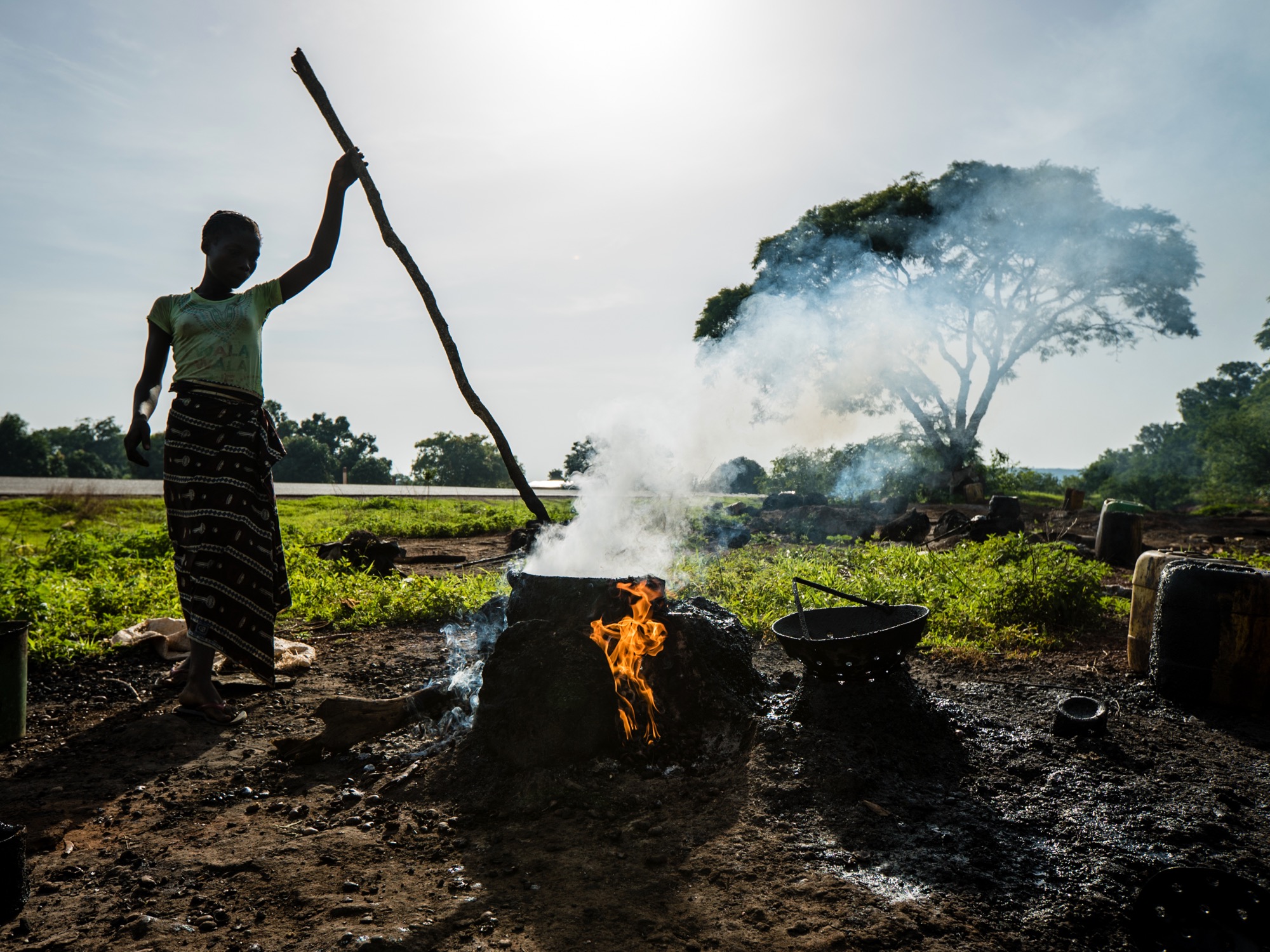
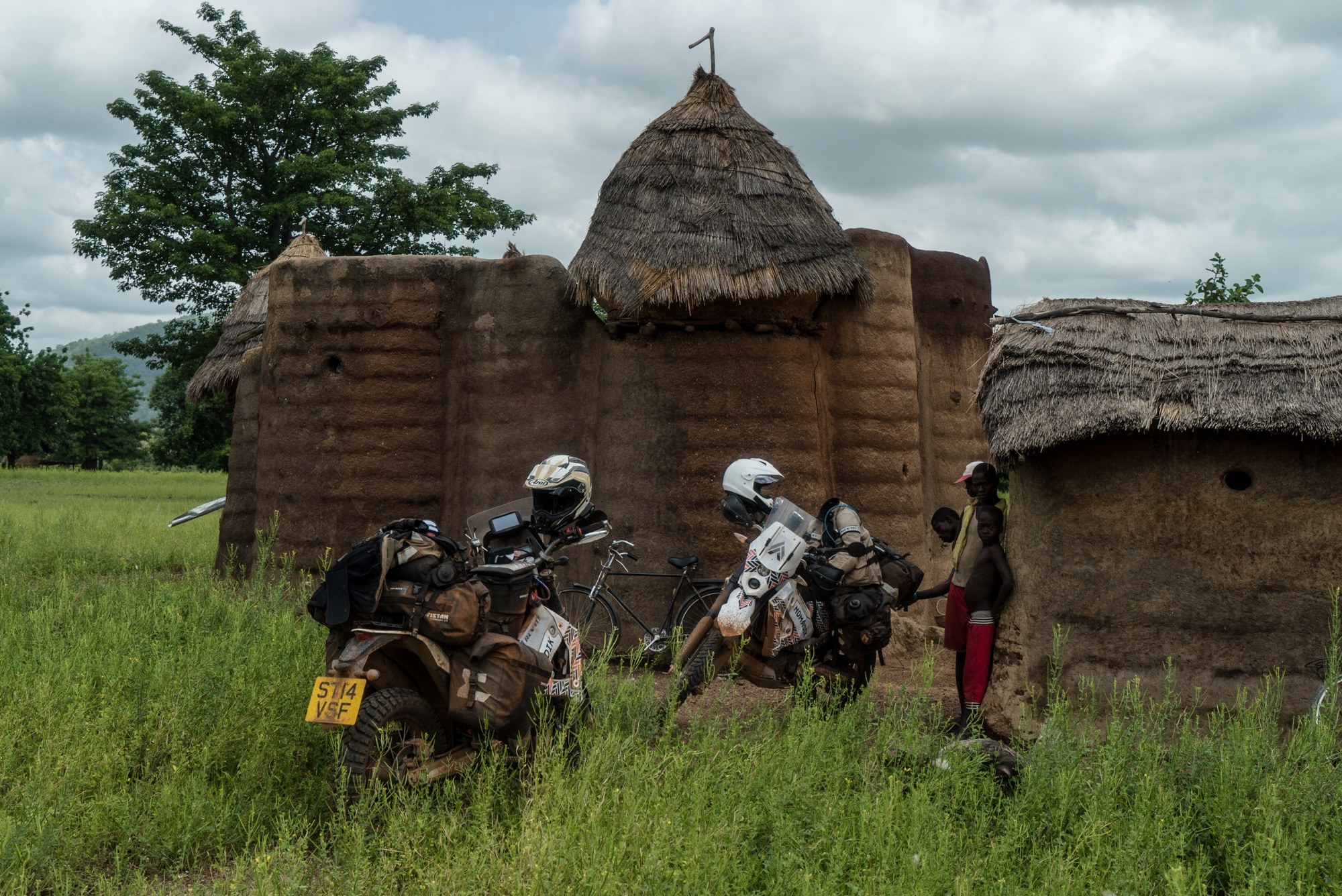
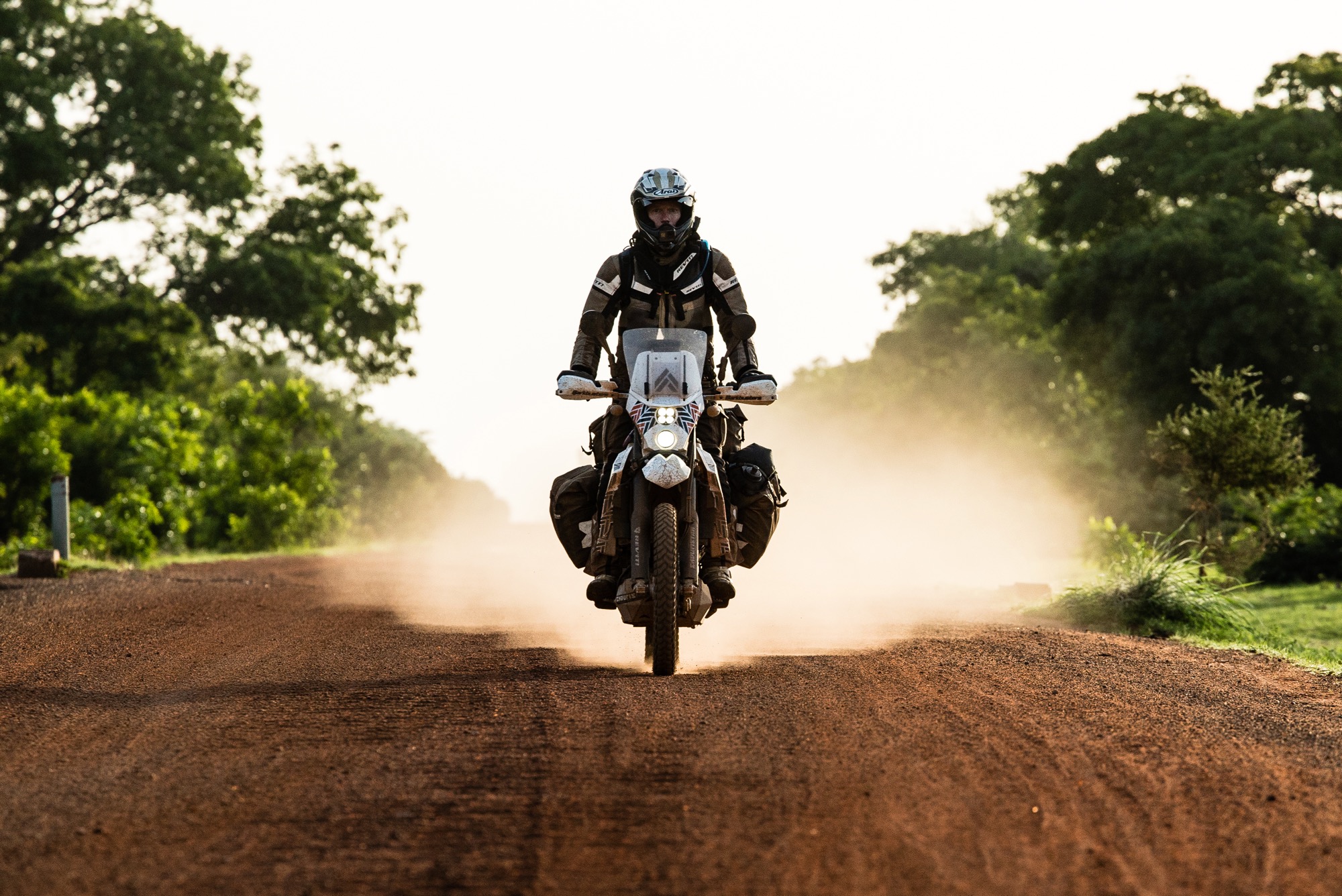
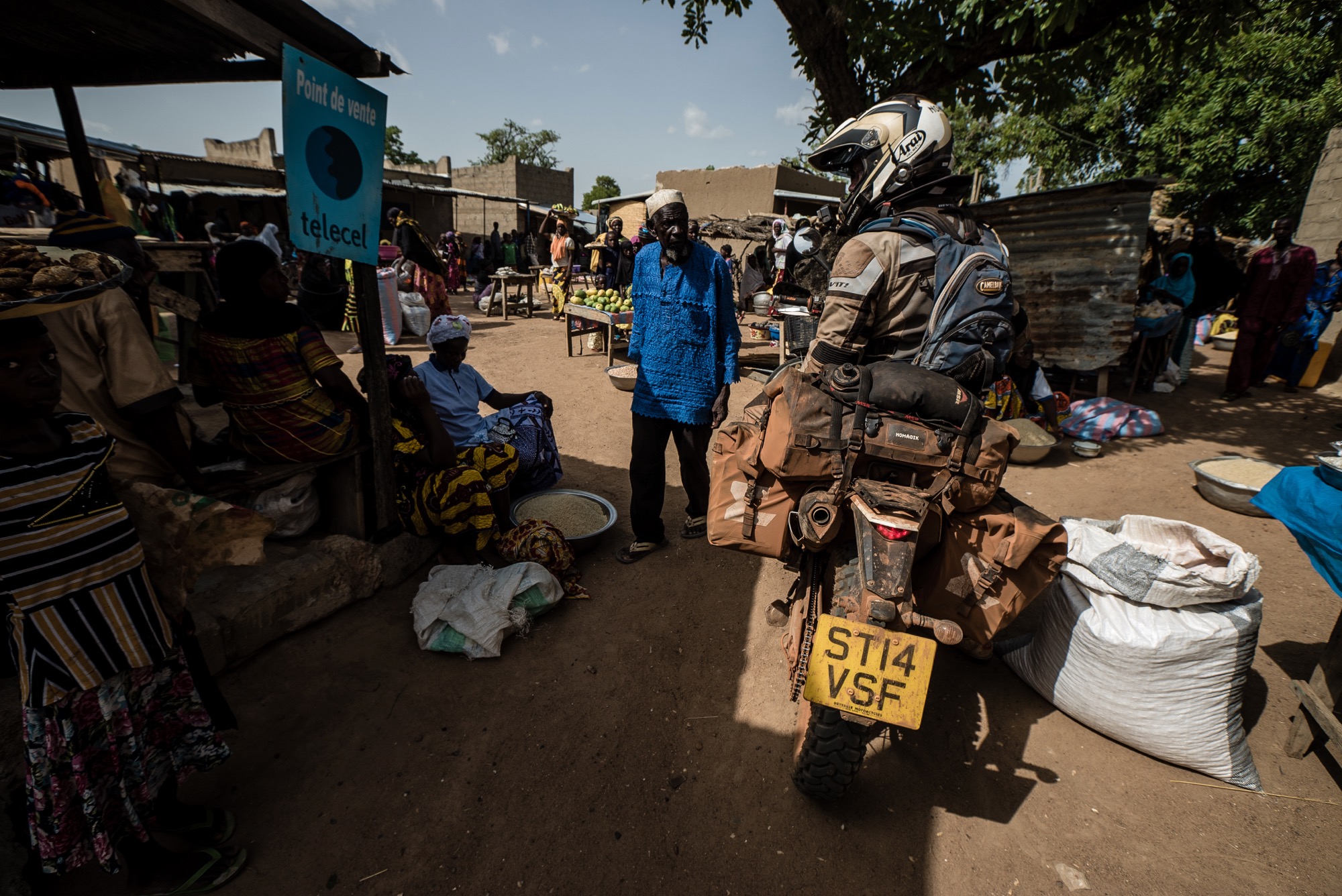
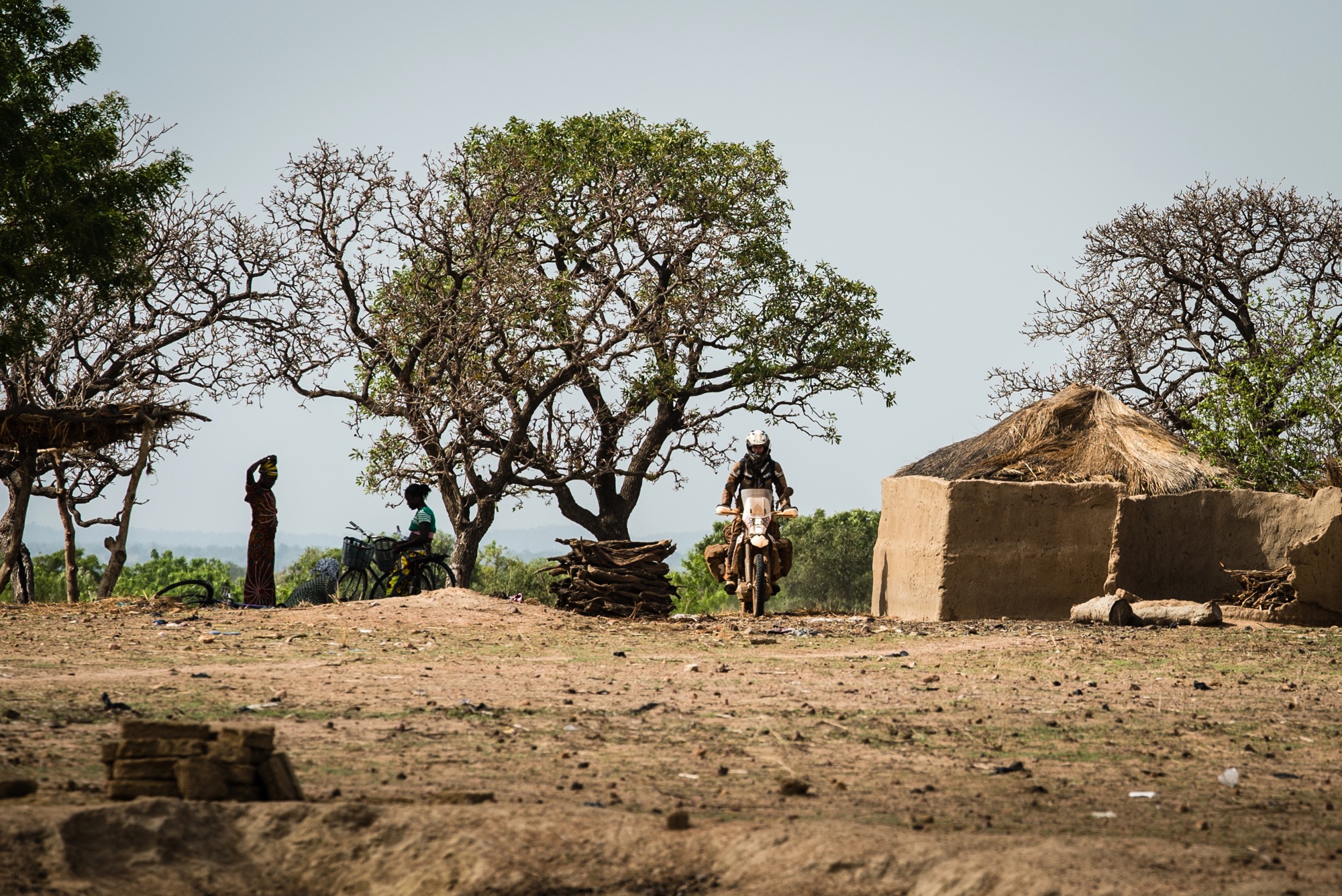
A month into the trip now, we had found our cadence and rhythm and were fully immersed in the adventure and accepting the one altercation crossing into Senegal, the people had been friendly and gracious. Thoughts of home and work were now few and far between and in their place we focused solely on avoiding errant animals on the roads, where we would find good gas, what to eat and where we would sleep. There was an inherent attrition to the flow, but it was an exceedingly pleasant flow.
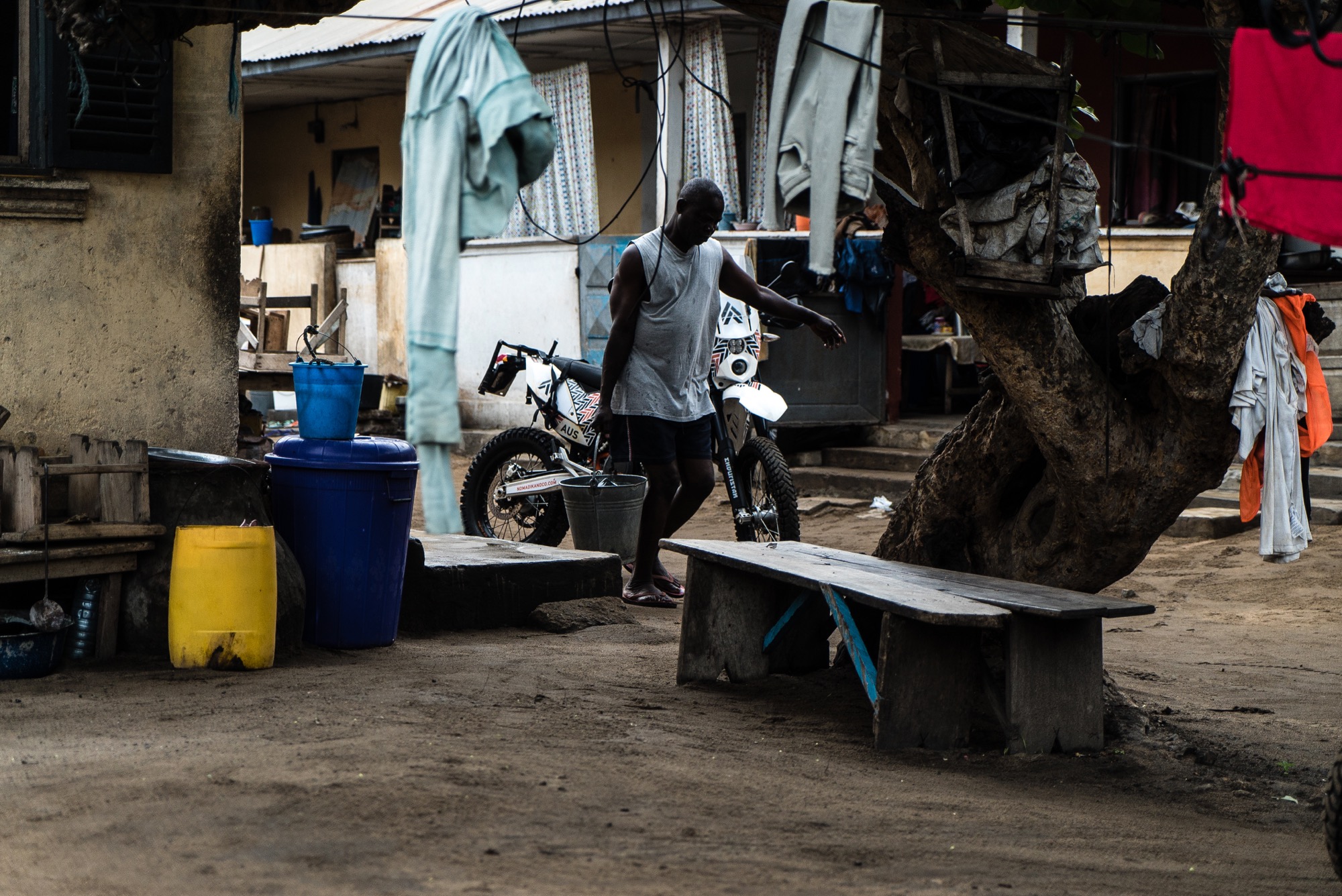
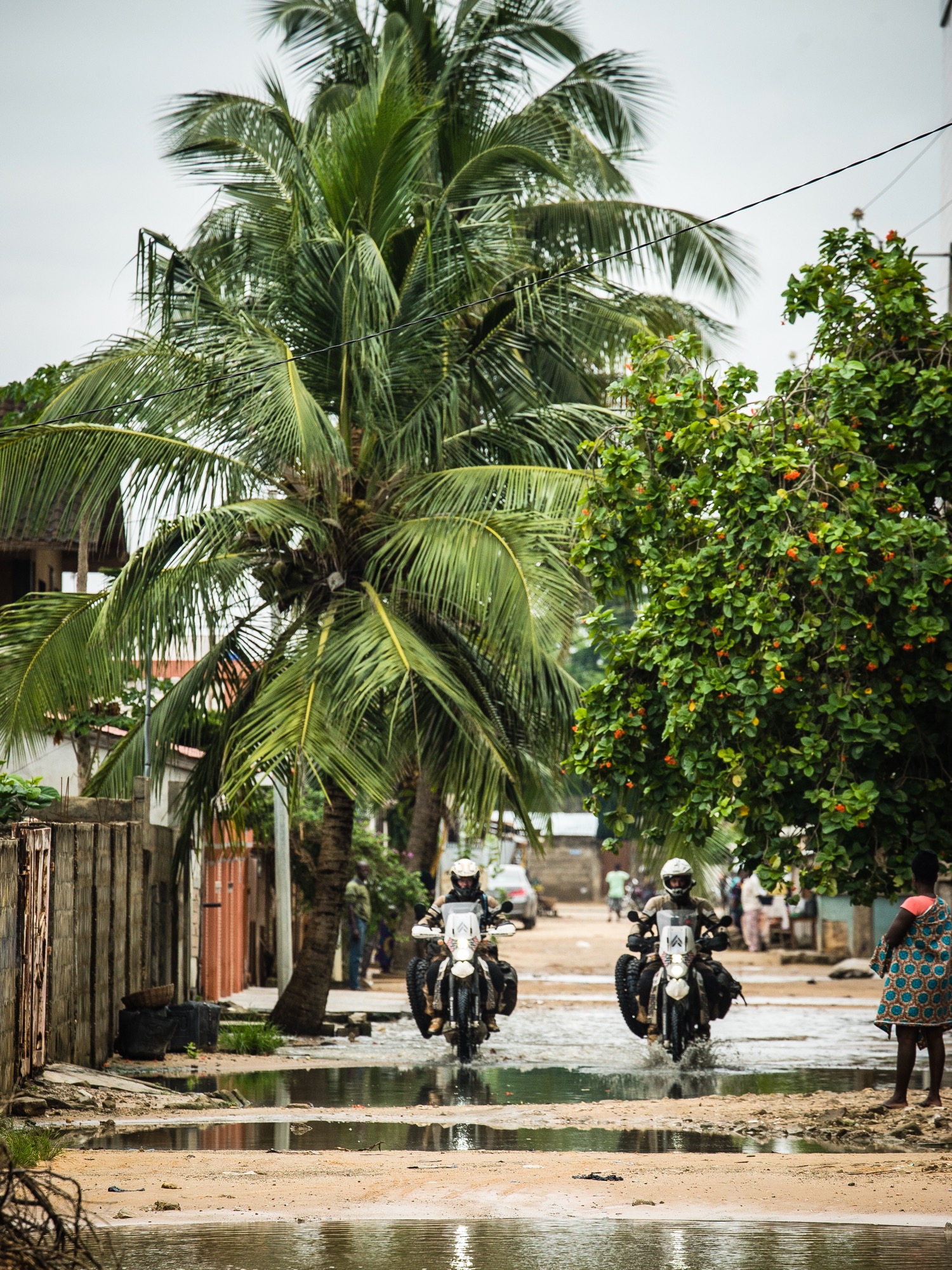
In Lomé we rested again and gave the bikes some much needed attention at Togo Toni, a fully fledged KTM dealership. We picked up new off road rubber (TKC 80's), changed the oil and brake pads and finessed a few small things that if left unattended were sure to become bigger issues in the future. We applied for our Rep. of Congo visas before moving down the road to Cotonou in Benin to get our DRC visas and hang out with Florian, a French researcher working on a malaria vaccine who we connected with on CouchSurfer.
Our next port of call would be Lagos, Nigeria's capital and the second largest city in Africa. The mountain of less than favourable sentiment towards Nigeria so far left us with serious reservations. Looking for any excuse to postpone our departure, we instead chose to focus on the lesser of the two challenges we faced and watched as the wet season struck, flooding the sandy streets of Cotonou in a biblical downpour. If we didn't feel vulnerable before, then we did now.





